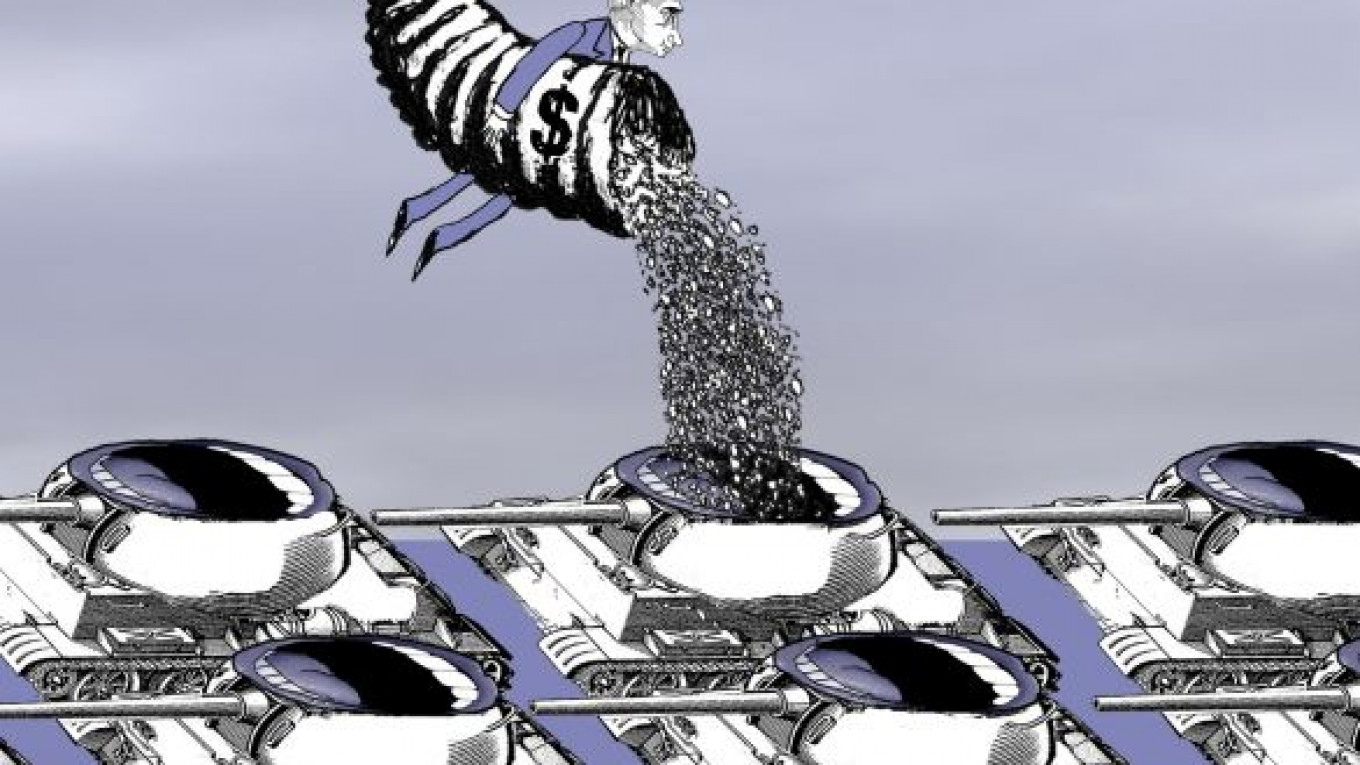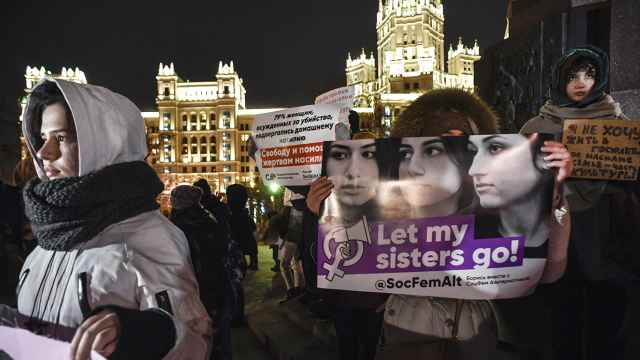It should come as no surprise that the Proton rocket launch last week resulted in the loss of two telecommunications satellites. This is the latest of a dozen or so satellites that Russia has lost over the past two years. Once again, Prime Minister Dmitry Medvedev ordered an investigation into the causes of the failure and punishment for those responsible. A special meeting is supposed to be held on the issue this week.
These failures provide a good indication of what to expect from the ambitious rearmament program, which will cost 23 trillion rubles ($723 billion) over 10 years. The space industry is supposed to be the most advanced in the country's military-industrial complex. At least a quarter of all defense contracts go toward developing the space industry.
Nevertheless, we are seeing one accident after another. There is reason to believe that the situation is even worse in other areas of the military, including aviation, shipbuilding, tanks and armored vehicles. Unlike Russia's domestic failures, the failures in the space industry, which involve contractual obligations to international companies, are impossible to cover up.
But even secrecy cannot change the sad fact that the defense industry is simply unable to produce high-quality weapons systems.
Meanwhile, a huge bureaucratic battle over state defense orders has just ended. Finance Ministry officials insisted that the rearmament program be postponed for three years, meaning the program would wrap up in 2023, not in 2020 as planned, according to media reports.
The reason behind the officials' call for postponement was not the looming financial crisis but a dirty secret that everybody knew but until now has never been acknowledged by a government official: Russia's defense industry is simply not capable of manufacturing the kind of sophisticated military hardware needed for the ambitious rearmament program.
To make matters worse, the military-industrial complex created by President Vladimir Putin, which is really just a copy of the Soviet system, is crippled by the fact that it is overly bureaucratic, inefficient and corrupt.
Pouring billions of rubles into this project will only lead to an increase in the cost of the end-products. So I fully understand the logic of those who would like to delay this squandering of public funds as much as possible.
At the same time, the state cannot possibly provide all the money it has promised. Just recently, a senior government official told Vedomosti that the state would allocate 700 billion rubles ($22 billion) less than previously promised for this year's state defense order.
To fill the gap, state banks will provide loans, First Deputy Defense Minister Alexander Sukhorukov said last week during a news conference. The payments on these loans, as well as interest payments, will come from the Defense Ministry's budget after 2015. It is clear that this loan scheme is ripe with opportunities to receive kickbacks, particularly when it gets to the point when the government chooses the "right" banks to work with.
At the same time, Putin is well aware of these problems in the defense industry. At a meeting last month on upgrading the Ground Forces, he argued at length about how in the manufacture of military equipment "dozens of subcontractors are involved, and sometimes even hundreds of subcontractors. Any failure or delay in the execution of a contract may actually derail the whole job."
Someone probably tried to explain to Putin that integration among the chains in the military-industrial complex is one of the weakest points of the domestic defense industry. Yet later in the meeting, he didn't budge. Instead, he demanded the impossible: "All the delivery schedules of weapons and equipment must be met in full, on time and at the agreed-on prices."
Thus, Putin wants to spend more than 20 trillion rubles on defense rearmament while being fully aware that the Army will not modernize or significantly improve its capabilities. The real reason, I suspect, that Putin is so eager to spend so much money on defense is to shore up his core political constituency.
A recent poll by the Levada Center shows how dramatically the political preferences differ in Moscow and St. Petersburg, on one hand, and the regional cities whose chief employers are defense industry plants. The two cities are largely anti-Putin, while the defense towns support Putin overwhelmingly.
In the end, residents of Moscow and St. Petersburg will get higher housing and public utilities prices, workers at Uralvagonzavod will get billions of rubles supposedly to build new tanks, and the military will remain as backward as it has been for the past 20 years.
Alexander Golts is deputy editor of the online newspaper Yezhednevny Zhurnal.
A Message from The Moscow Times:
Dear readers,
We are facing unprecedented challenges. Russia's Prosecutor General's Office has designated The Moscow Times as an "undesirable" organization, criminalizing our work and putting our staff at risk of prosecution. This follows our earlier unjust labeling as a "foreign agent."
These actions are direct attempts to silence independent journalism in Russia. The authorities claim our work "discredits the decisions of the Russian leadership." We see things differently: we strive to provide accurate, unbiased reporting on Russia.
We, the journalists of The Moscow Times, refuse to be silenced. But to continue our work, we need your help.
Your support, no matter how small, makes a world of difference. If you can, please support us monthly starting from just $2. It's quick to set up, and every contribution makes a significant impact.
By supporting The Moscow Times, you're defending open, independent journalism in the face of repression. Thank you for standing with us.
Remind me later.







